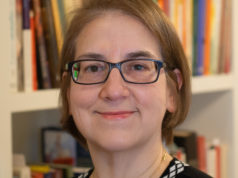
The COVID-19 pandemic exposed lingering mistrust in the U.S. healthcare system among patients from minority communities as physicians continue to confront the conundrum of healthcare disparities in terms of outcomes alongside a lack of diversity in clinical trials, a roundtable discussion at Vascular Interventional Advances (VIVA) 2022 in Las Vegas (Oct. 31–Nov. 3) heard.
Vincent Rowe, MD, chair of the SVS Diversity, Equity and Inclusion (DEI) Committee, told the gathering, entitled, “How to be a trialist,” that despite a National Institutes of Health (NIH) intervention nearly 30 years ago aimed at recruiting more minorities into clinical research, “we haven’t seen much change.”
“We’ve talked a lot about clinical trials, their importance and how they have to be applicable to the full population of patients that we deal with,” he said. “Unfortunately, there are still a lot of disparities in our outcomes, so we’re going to need a diverse cohort to be able to understand the differences.”
Rowe pointed to a study that looked at patients eligible for cardiometabolic trials. The problems that emerged, mostly from the patient side, included lack of awareness, lack of information, mistrust, and a lack of comfort with the process. He highlighted how historical experiences with the healthcare system have led to low levels of trust, especially among the Black community. “And if you think that it is all over and things have gotten better, I think the COVID pandemic was a perfect microcosm of this mistrust that happened,” he said.
Rowe said combating these problems is multifactorial but suggested greater diversity among site investigators and cultural competency as among potential remedies. “You need people in your trials to be applicable to all the patients that you’re seeing,” Rowe said, demonstrating how enrollment for the BEST-CLI trial at his institution among the Hispanic community was bolstered by the involvement of a colleague fluent in both the culture and language. “There needs to be some kind of cultural competency,” but that does not require race concordance, he added. “There just needs to be someone talking to them that’s technically competent and understands the culture.”
The role of referring physicians, too, is key, in order that they receive the support required “to send us patients from a culturally diverse environment,” Rowe told the VIVA gathering. “We’re going to need to increase these patients in clinical trials,” he said. “It may be difficult based on the times we are in. People say they are so entrenched in their views, but I think it is possible—and it can only help to improve the care for all of our patients.”












